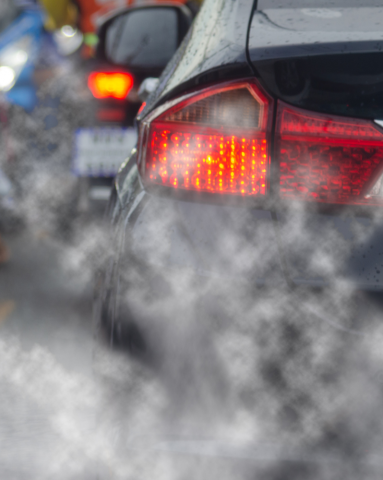New research finds one-in-two healthcare attendances for breathing difficulties in Bradford could be triggered by breaches in daily air pollution limits
As many as one-in-two healthcare attendances for breathing difficulties in Bradford could be triggered by breaches in daily air pollution limits, new research has uncovered.
The data-driven study, which analysed more than 120,000 patients over four years, has revealed that the impact of pungent gases on health care use is far greater than previously reported.
It also highlighted that the delayed impact of exposure to high levels of air pollution has also been underestimated. It red-flagged this as a cause for concern after identifying that patients were still suffering from the impact of pollutants up to 100 days afterwards.
Research experts from the landmark Born in Bradford (BiB) programme scrutinised data from no fewer than 114,930 GP and 9,878 A&E attendances for respiratory problems, such as asthma and chronic obstructive pulmonary disease (COPD), between January 2018 and December 2021.
In one of the biggest studies of its kind globally, they discovered a worrying trend when the daily levels of nitrogen dioxide – which forms part of the discharge from car exhausts - soared above recommended levels set by the World Health Organisation (WHO).
The team found that the condition of up to 35% of patients with respiratory problems seeing their GP, and 49% of those attending A&E, was linked to days with excessive air pollution.
The combined cost of these pollution-related healthcare visits to the NHS during the Bradford study is estimated to be £2m – a financial burden higher than previously thought.
Professor Rosie McEachan, director of the Born in Bradford study and senior author of the report said: “Some 500 people die in Bradford each year from respiratory disease and we know that air pollution is a contributory factor.
“Our research has shown that when air pollution is high, there is an increase in demand at our hospitals and GPs, which can put pressure on our services.
“We think previous research may have underestimated the impact of pollution on health care use, as it mainly focused on what happens immediately - on the day of the high pollution.”
She added: “Our study, which used anonymised data covering the entire Bradford population, broke new ground as for the first time we were able to assess the impacts of pollution that may only present later.
“These findings are a cause for concern for Bradford as the air quality tracking discovered that pollution levels were exceeded on an average of 157 days per year - 43% of the time.”
Dr Brad Wilson, a consultant in the Accident and Emergency department at Bradford Royal Infirmary, one of the busiest in the NHS, said: “‘GP and A&E services are under great pressures.
“This evidence shows how we can reduce those pressures by tackling air pollution.
“If our communities can breathe cleaner air then it is good for their health and good for the NHS.”
Other members of the research team included Teumzghi Mebrahtu, Gillian Santorelli, Tiffany Yang, John Wright, and James Tate, representing the Born in Bradford programme at the Bradford Institute of Health Research, the Wolfson Centre for Applied Health Research at the Bradford Royal Infirmary and the Institute of Transport Studies at the University of Leeds.
